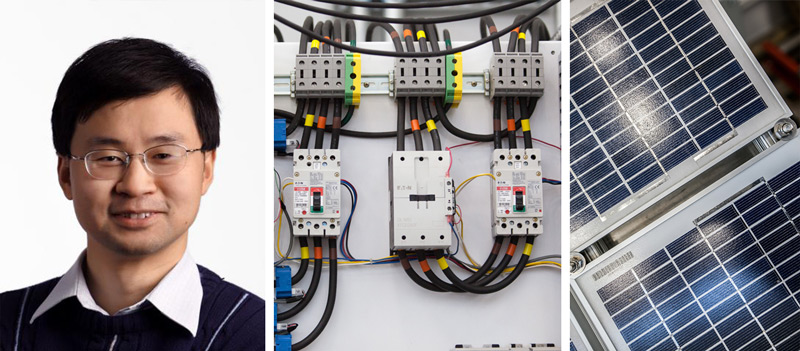
In a free public seminar at 3:30 PM on September 24, in room 1115 of the Wisconsin Energy Institute, Chemistry Professor Song Jin will discuss research in producing value-added chemicals from solar energy as well as integrated solar and storage devices to deal with solar's inherent variability.
Abstract: Due to the intermittent nature of most renewable energy sources (such as solar and wind), practical large scale renewable energy deployment and utilization demand both efficient energy conversion and large scale energy storage or alternative usage. Utilizing the increasingly affordable renewable electricity to electrochemically produce value-added chemicals from sustainable raw materials could be an effective approach. After a brief review of our research progress in developing earth-abundant catalysts for electrochemical or photoelectrochemical solar water splitting, I will discuss our recent efforts on the conversion of biomass derived molecules (such as HMF and glycerol) to value-added chemicals, and the electrochemical production of hydrogen peroxide from selective reduction of oxygen. In the second part, I will discuss novel hybrid solar-charged storage devices that integrate photoelectrochemical solar cells and redox flow batteries (RFBs). In these integrated solar flow batteries (SFBs), solar energy is absorbed by semiconductor electrodes to directly charge up the redox couples without external electric bias; which can be discharged to generate the electricity as in a RFB when electricity is needed. We have recently achieved integrated SFB devices with an overall direct solar-to-output electricity efficiency (SOEE) of 14%. These high performance SFBs can serve as distributed and standalone solar energy conversion and storage systems in remote locations and enable practical off-gird electrification.
